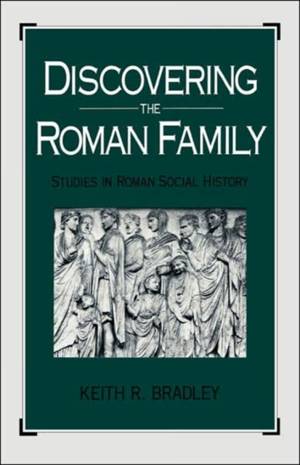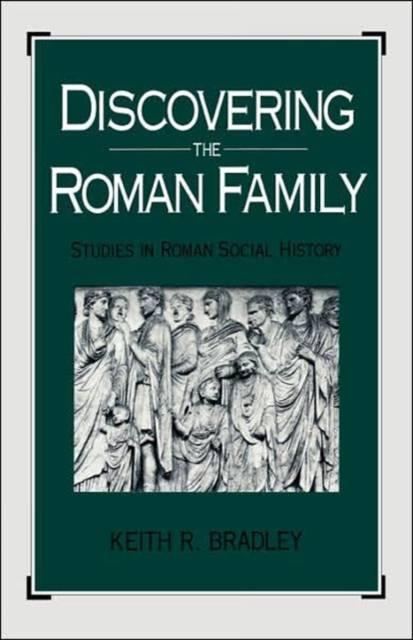
- Afhalen na 1 uur in een winkel met voorraad
- Gratis thuislevering in België vanaf € 30
- Ruim aanbod met 7 miljoen producten
- Afhalen na 1 uur in een winkel met voorraad
- Gratis thuislevering in België vanaf € 30
- Ruim aanbod met 7 miljoen producten
Zoeken
Discovering the Roman Family
Studies in Roman Social History
Keith R Bradley, K R Bradley
Paperback | Engels
€ 51,95
+ 103 punten
Omschrijving
These essays on various aspects of family life in ancient Rome offer an especially timely and provocative new characterization of how this most elementary component of Roman society was structured. Recognizing that a traditional nuclear model is necessary for a basic understanding of Roman family organization, Keith R. Bradley argues that a broader, more extensive context must be established if this structure is to be fully appreciated. Examining the roles of slaves, servants, and other surrogates in the upbringing and socialization of children, and concentrating on the parts played by wet-nurses and male childerminders, his book molds an entirely new framework for the study of the Roman family. He investigates the extent of serial marriage, especially among the upper-classes, and the effects of the widespread familial dislocation that resulted, and for the first time considers the prevalence of child labor in the Roman world, contrasting the experiences of upper-class and lower-class children. Bringing these themes together in a lively final section through a fresh, thorough examination of Cicero's correspondence, Bradley portrays the life of an actual Roman family. A seminal contribution to Roman social history, this book is essential reading for anyone interested in how the family worked and lived in classical times.
Specificaties
Betrokkenen
- Auteur(s):
- Uitgeverij:
Inhoud
- Aantal bladzijden:
- 240
- Taal:
- Engels
Eigenschappen
- Productcode (EAN):
- 9780195058581
- Verschijningsdatum:
- 25/04/1991
- Uitvoering:
- Paperback
- Formaat:
- Trade paperback (VS)
- Afmetingen:
- 140 mm x 210 mm
- Gewicht:
- 308 g

Alleen bij Standaard Boekhandel
+ 103 punten op je klantenkaart van Standaard Boekhandel
Beoordelingen
We publiceren alleen reviews die voldoen aan de voorwaarden voor reviews. Bekijk onze voorwaarden voor reviews.











